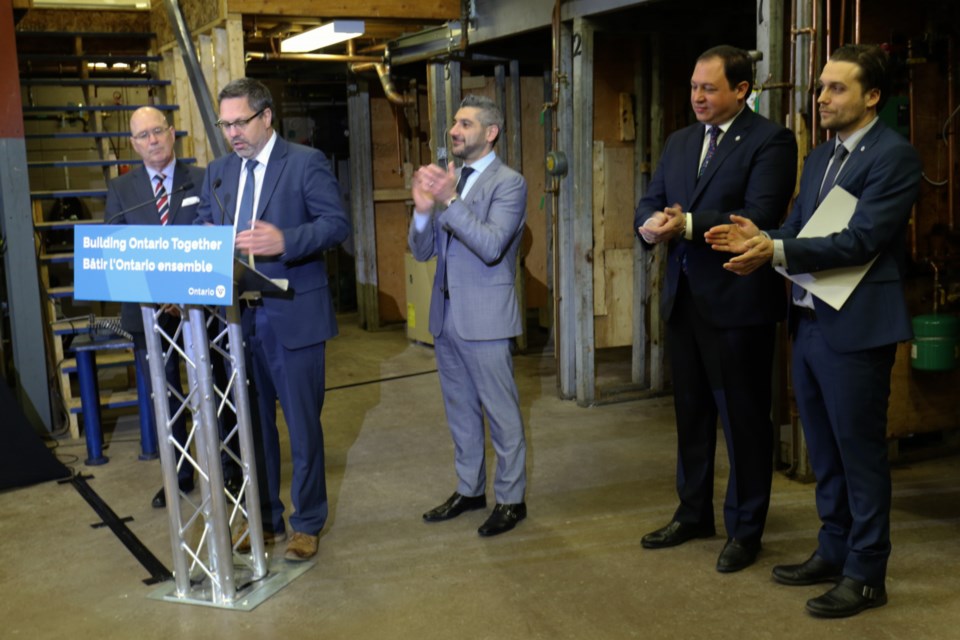The provincial government is doling out $900,000 to a collaborative approach to helping people move out of community housing and into home ownership, while providing job training to recipients of social assistance.
The money from the province will enable the District of Sault Ste. Marie Social Service Board (DSSMSSAB) will be used to buy up to six homes in need of repair while expanding a training program at Sault College that teaches Ontario Works clients building and maintenance skills.
The homes will then be sold by the social service board to residents of community housing, which in turn would potentially free up community housing units in the city.
“It’s a wonderful partnership, and we’re just so pleased as a government to support it,” Municipal Affairs and Housing Minister Steve Clark told reporters after Friday’s announcement. “It really speaks to allowing people to realize the dream of home ownership and to have an affordable, sustainable program for affordable housing.”
Ward 2 councillor Luke Dufour – who was instrumental in bringing the idea for the project to the table – says staff at the housing corporation and representatives from the DSSMSSAB procurement committee will do a business case analysis, which includes a detailed construction estimate for what it would take to get that homes up to proper standards.
“The numbers don’t lie - we take those numbers and we put them up against the purchase price, and we have our affordability quotient, essentially, in order to have a property exit the program,” Dufour told reporters. “The purchase price plus the renovation costs has to equal the affordability price – and so we go in and then negotiate in order to buy the home.”
“Once the home is secured, then we can start doing things like scheduling the building maintenance plan with OW [Ontario Works] to come in and start putting work in. Any of the work that they’re able to complete just helps to bring down that final number for whoever the eventual [home buyer] will be.”
The majority of the homes will be located in the city’s downtown core - which can present challenges for the housing program.
“We’ve gone through a number of years where the housing stock has aged, and so that is the challenge of this program - to find that sweet spot where you can still keep the amount affordable, keep the repairs up to proper standards,” said Dufour. “We built in a lot of flexibility into the program - whether we’re buying a house for 80 [thousand dollars] and putting 20 [thousand dollars] in, or buying a house for 40 [thousand dollars] and putting 60 [thousand dollars] in - we’ve designed it to be as nimble as possible to act more like a development company.”
Dufour says the project will address a need in the community at large.
“We have a lot of people who are working in jobs that are low wage jobs, wages that haven’t grown in a long time,” he said. “If you’re making 16, 17 dollars an hour, you can’t afford to save up the down payment to buy a house even though your rent is probably the same as the operating costs of owning one of these homes - and that was the gap that we really wanted to close.”
Meanwhile, Clark says that the new, made-in-the-Sault housing project could potentially be a model for the rest of Ontario.
“We want to repair, sustain and renew our existing housing stock, so we want to look at any innovative partnership, and I think we all agree that this is extremely innovative to have the college, the DSSMSSAB, to include people who are on Ontario Works - and then to ultimately provide affordable housing - I think it hits all the marks for our government, and we look forward to the success of the program,” said Clark.
It’s anticipated that as many as 80 Ontario Works clients could receive on-the-job training as a result of the project.
